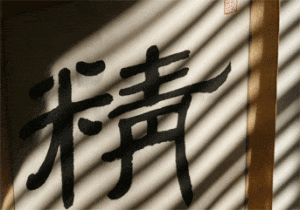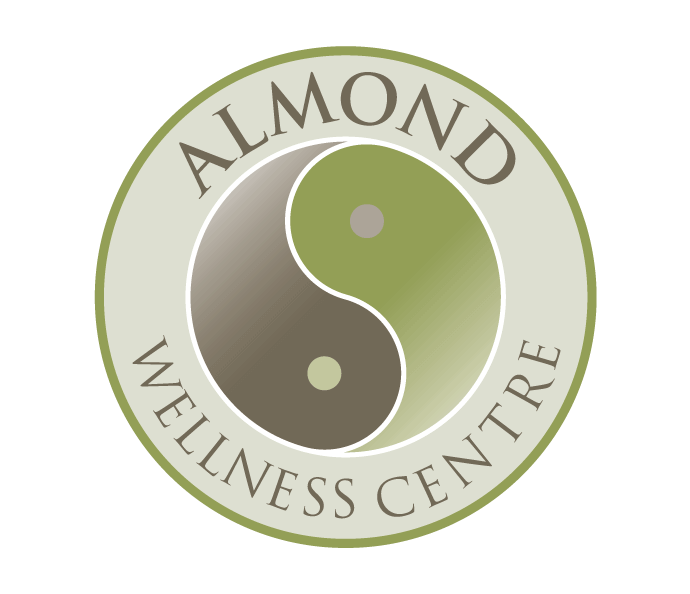Menopause Acupuncture Melbourne
Why is menopause treated like a disease, when it is actually a natural and normal process?

Menopause Chinese medicine view
According to the principles of acupuncture and Chinese Medicine, symptoms and signs related to menopause are seen as manifestations of deeper imbalances within the body.
The approach emphasises the correction of underlying imbalances that may have developed over time. Neglecting to address these imbalances can lead to a range of symptoms and signs during menopause.
Chinese medicine and woman’s natural process
Menopause signifies a significant “transition” within a woman’s life. This transition occurs because a woman’s body chemistry is shifting.
Chinese medicine recognises this chemistry change as a natural process.
In the perspective of traditional Chinese medicine (TCM), the hormone oestrogen is seen as akin to Jing Qi, which can be understood as a vital energy bestowed upon us at the moment of conception. Jing Qi acts as a reservoir, supplying the fundamental energy necessary for all bodily functions. When Jing Qi is abundant, our ability to withstand disease, illness, and stress is optimal.
As we age, our reserve of Jing Qi gradually depletes. Typically, the decline of Jing Qi begins between the ages of 35 and 60, although the rate of depletion may vary among individuals. When Jing Qi diminishes, the Organ Systems in our body become imbalanced, giving rise to a range of symptoms and signs such as greying hair, decreased libido, weakened knees, urinary difficulties, memory problems, backache, and fatigue.

Jing – the Essence
How Jing Qi can be drained
- Over working
- Overexertion
- Over stressed
- Poor dietary habits
- Inherited weakness
- Burning the candle at both ends
- Excessive activities (sexual, alcohol, drugs, late nights)
Imbalance in Yin and Yang
An additional factor that can contribute to the experience of menopause is an imbalance between Yin and Yang energies.
One possible scenario involves an imbalance caused by a decrease in the flow of Yin energy. Yin can be likened to the body’s cooling system. When this cooling system diminishes, heat-related symptoms may arise, such as night sweats, restlessness, hot flashes, mood swings, heart palpitations, and insomnia.
Similarly, a decline in Yang energy can also result in an imbalance. Yang represents the body’s warming and metabolising functions. When Yang is imbalanced, symptoms like water retention, cold hands and feet, weight gain, edema, indigestion, hypertension, or elevated cholesterol levels may occur.
Left untreated, a decline and imbalance of Jing, Yin or Yang will lead to the symptoms and signs that are normally associated with a Western diagnosis of menopause.
How does a Chinese medicine acupuncture practitioner do?
A TCM acupuncture practitioner begins by conducting a comprehensive evaluation and gathering a detailed health history of the patient. This includes examining the symptoms, signs, and other relevant information to form a complete diagnostic understanding of the individual’s health – the Pattern Diagnosis.
Common pattern diagnoses in menopause
TCM aims to understand these changes through pattern diagnosis and develop individualised treatment plans. Some common pattern diagnoses in menopause include:
- Kidney Yin Deficiency: Menopause is often associated with a decline in Yin energy, which can lead to symptoms such as hot flashes, night sweats, dryness (vaginal, skin, or eyes), insomnia, and irritability.
- Kidney Yang Deficiency: This pattern may present with symptoms such as fatigue, cold intolerance, lower back or knee weakness, decreased libido, urinary incontinence, and water retention.
- Liver Qi Stagnation: Emotional changes and mood swings are common during menopause. Liver Qi Stagnation may manifest as irritability, mood swings, depression, anxiety, breast distention or tenderness, and menstrual irregularities.
- Spleen Qi Deficiency: This pattern can lead to symptoms like fatigue, bloating, poor appetite, weight gain, loose stools, and a tendency to bruise easily.
- Heart and Liver Blood Deficiency: Blood deficiency may present with symptoms such as palpitations, insomnia, forgetfulness, dizziness, and dry skin.
- Phlegm-Dampness Accumulation: Symptoms of this pattern may include weight gain, bloating, fluid retention, foggy thinking, heavy or prolonged periods, and a feeling of heaviness.
Treatment for menopause
Based on the above Pattern Diagnosis, the practitioner can create a personalised treatment plan that addresses the specific concerns of the patient. For menopause-related symptoms, the Chinese medicine acupuncture practitioner focuses on identifying the areas where the energy has changed and the Organ Systems that have become imbalanced. With this knowledge, a combination of natural therapies, such as acupuncture, herbal remedies, meditations, life style changes, exercises, and dietary recommendations, can be employed to restore balance and correct the imbalances.
Acupuncture and Chinese medicine provide a drug-free and natural approach to addressing menopause symptoms. The treatment methods aim to support and harmonise the healing energies of Jing, Yin, and Yang, providing the body with the necessary elements to nourish, heal, and regain balance.
Common used herbs and herbal formulas
Various herbs and herbal formulas are commonly used to help manage symptoms and support women during the menopausal transition. Here are some examples of herbs and herbal formulas frequently utilised:
- Dong Quai (Angelica sinensis): Also known as “female ginseng,” Dong Quai is often used to tonify and nourish blood. It may help alleviate symptoms such as hot flashes, night sweats, and menstrual irregularities.
- Ginseng (Panax ginseng): Ginseng is an adaptogenic herb that can help support energy levels, reduce fatigue, and improve overall well-being during menopause.
- Black Cohosh (Actaea racemosa): Black Cohosh has been widely studied for its potential to alleviate hot flashes, night sweats, and other menopausal symptoms. It may also help support emotional well-being.
- Poria (Poria cocos): Poria is a fungus that is frequently used in TCM formulas to promote diuresis and address symptoms like water retention, bloating, and edema.
- Rehmannia (Rehmannia glutinosa): Rehmannia is commonly used to tonify Kidney Yin and support hormonal balance during menopause. It may help alleviate hot flashes, night sweats, and dryness.
- Er Xian Tang (Two Immortals Decoction): This herbal formula combines multiple herbs, including Epimedium, Morinda, and Anemarrhena, to help address various menopausal symptoms such as hot flashes, night sweats, mood swings, and vaginal dryness.
- Zhi Bai Di Huang Wan (Anemarrhena, Phellodendron, and Rehmannia Formula): This formula is often used for symptoms of Yin deficiency, including hot flashes, night sweats, dryness, and irritability.
Common used acupuncture points
While the selection of acupuncture points may vary depending on an individual’s specific symptoms and pattern diagnosis, here are some commonly used acupuncture points for menopause:
- Sanyinjiao (SP6): Located on the inner aspect of the lower leg, about four finger-widths above the ankle bone. It is commonly used to regulate menstruation, alleviate hot flashes, and promote overall hormonal balance.
- Guanyuan (CV4): Located on the lower abdomen, about two finger-widths below the navel. This point is often used to tonify Qi, nourish Kidney Yin, and support reproductive health.
- Zhongji (CV3): Located below the navel, in the lower abdomen. It is used to tonify Kidney Qi, regulate menstruation, and relieve symptoms such as hot flashes and night sweats.
- Hegu (LI4): Located on the hand, in the webbing between the thumb and index finger. This point has a wide range of applications and can help alleviate various symptoms, including hot flashes, headaches, and emotional imbalances.
- Qihai (CV6): Located on the lower abdomen, about one and a half finger-widths below the navel. It is used to tonify Qi, nourish Kidney Yin, and support overall well-being during menopause.
- Taixi (KD3): Located on the inner side of the ankle, in a depression between the Achilles tendon and the ankle bone. This point is commonly used to tonify Kidney Yin and support hormonal balance.
- Baihui (GV20): Located on the top of the head, at the midpoint of the line connecting the apexes of both ears. It is often used to calm the mind, alleviate insomnia, and support emotional well-being during menopause.
Disclaimer: The information provided above is for educational purposes and should not be considered medical advice.
Almond Wellness Centre
Almond Wellness Centre located in Melbourne Coburg and Ringwood areas, is a multidisciplinary clinic devoted to fostering wellness. Our clinics place great importance on comprehensive healthcare that encompasses the whole person. We approach each individual as a unique entity, considering their lifestyle, diet, environment, emotions, and attitude.
Whether you are in search of treatment for a particular health issue such as fertility IVF support or aiming to enhance your overall well-being, Almond Wellness Centre is dedicated to delivering personalised care tailored to your needs. Our goal is to assist you in achieving your health objectives and supporting your journey towards optimal wellness.
As each person is different, if you or someone you care about is experiencing menopausal issues and would like to explore the potential benefits of Chinese medicine acupuncture, please don’t hesitate to contact us. Our senior Chinese medicine practitioner Dr. Richard Zeng and other fully qualified registered acupuncture Chinese medicine practitioners in both Coburg clinic and Ringwood clinic are here to provide information and assistance.
Latest Research
Management of Menopause Symptoms with Acupuncture: An Umbrella Systematic Review and Meta-Analysis.
J Altern Complement Med. 2018 Apr;24(4):314-323.
An umbrella systematic review (SR) was conducted, supplemented by a search of published randomized controlled trials (RCTs), that assessed the effectiveness of acupuncture for VMSs, health-related quality of life (HRQOL), and adverse effects of treatment in perimenopausal or postmenopausal women. Meta-analyses were conducted using a random-effects model when data were sufficient.
Authors’ conclusions:
Evidence from RCTs supports the use of acupuncture as an adjunctive or stand-alone treatment for reducing VMSs and improving HRQOL outcomes, with the caveat that observed clinical benefit associated with acupuncture may be due, in part, or in whole to nonspecific effects. The safety of acupuncture in the treatment of VMSs has not been rigorously examined, but there is no clear signal for a significant potential for harm.
This research showed that acupuncture significantly ameliorated general menopause symptoms including negative mood, sleep problems, pain, headache and dizziness. While meta analysis suggested that acupuncture did not reduce the severity of hot flushes compared with hormone therapy, the side effects of drug therapy are significant and its safety profile is poor by comparison.
The authors suggest that the mechanism by which acupuncture alleviates menopause symptoms might include regulation of cytokines and the autonomic nervous system.
Breast cancer patients concerned about the adverse effects of hormone therapy may consider acupuncture.
More to read
Menstrual Cycle and Traditional Chinese Medicine
Can you have period without ovulating?
Having two periods in one month? You may just have ovulation bleeding 一个月来两次月经?你也许只是排卵期出血
